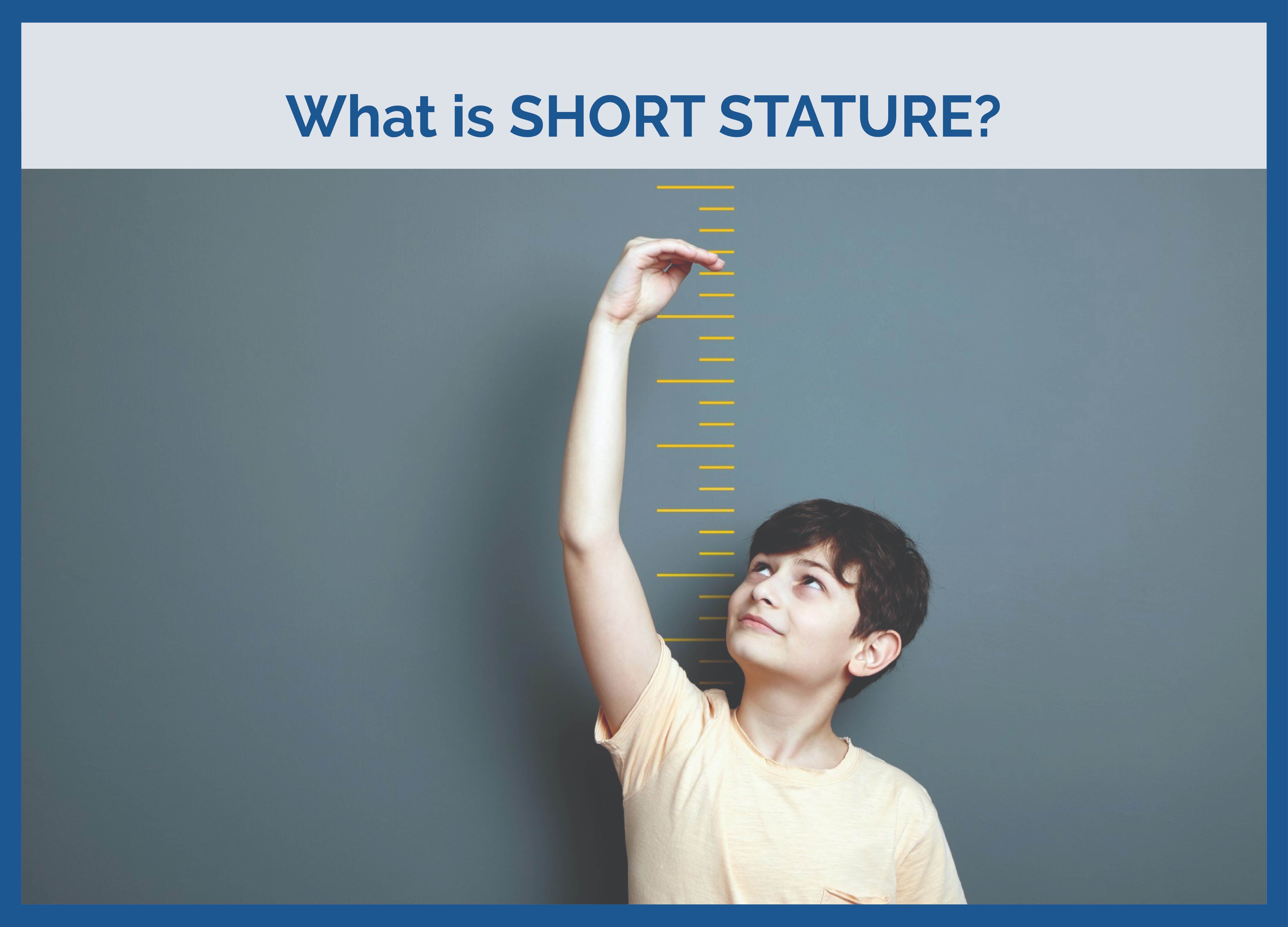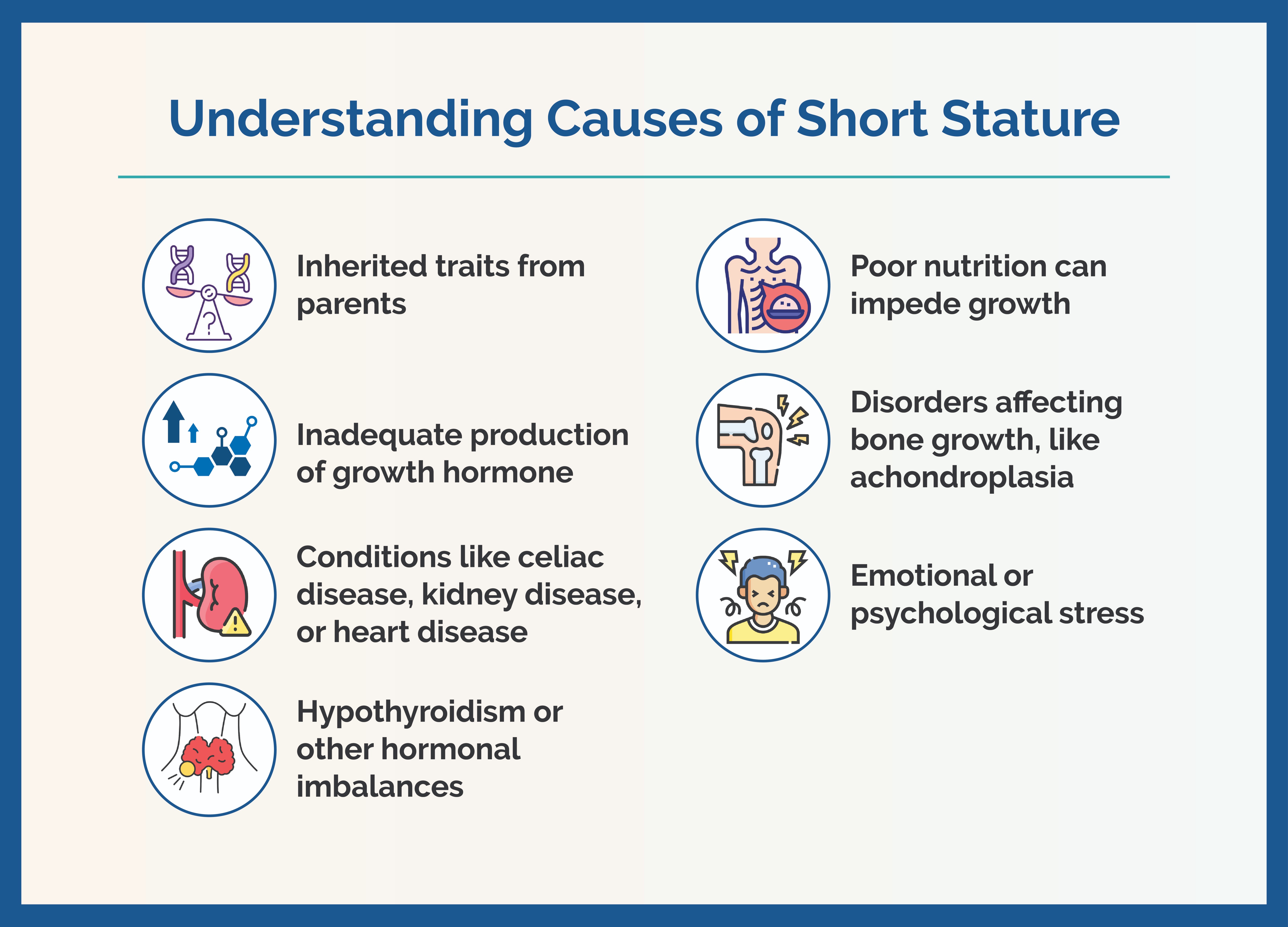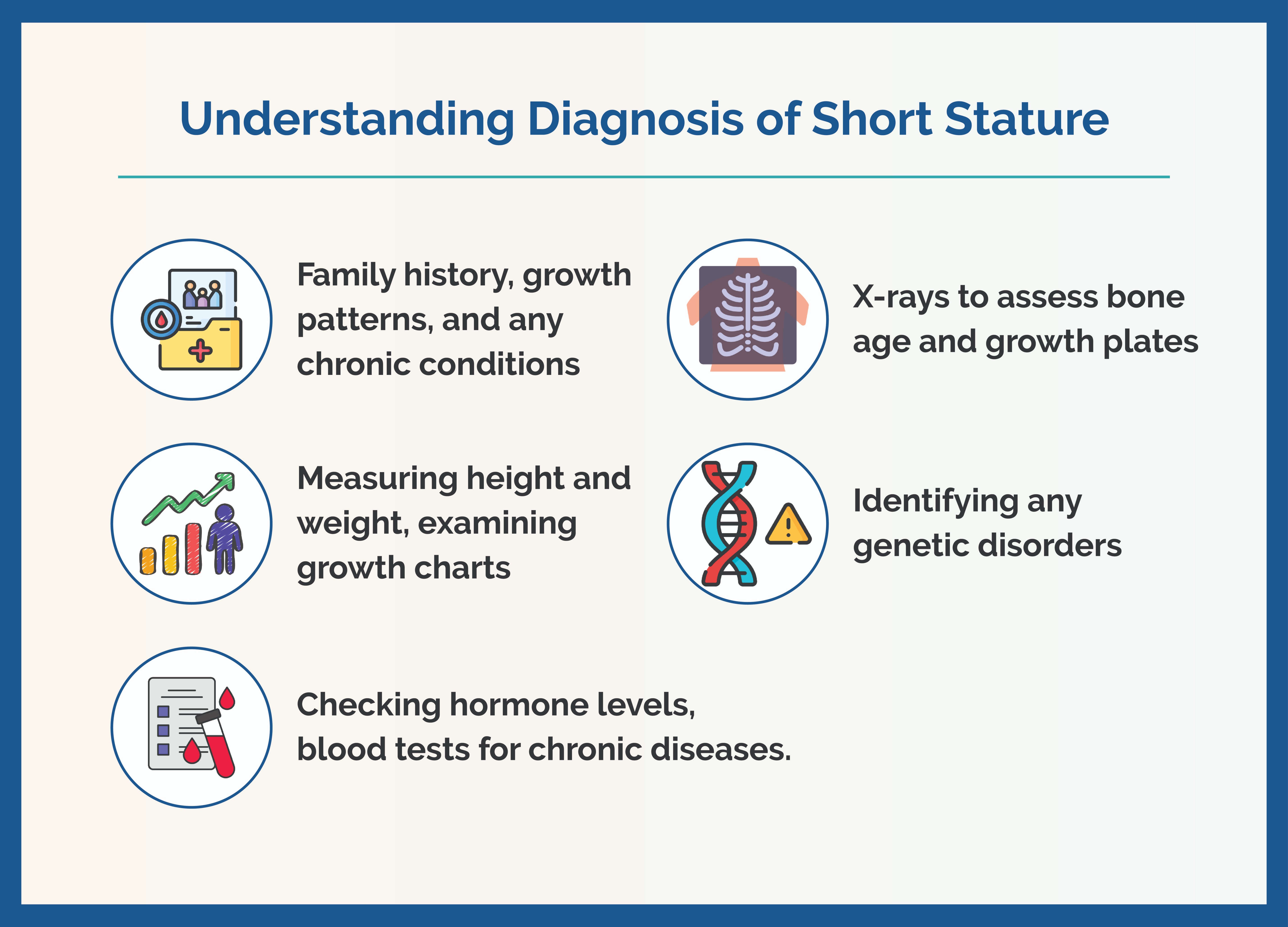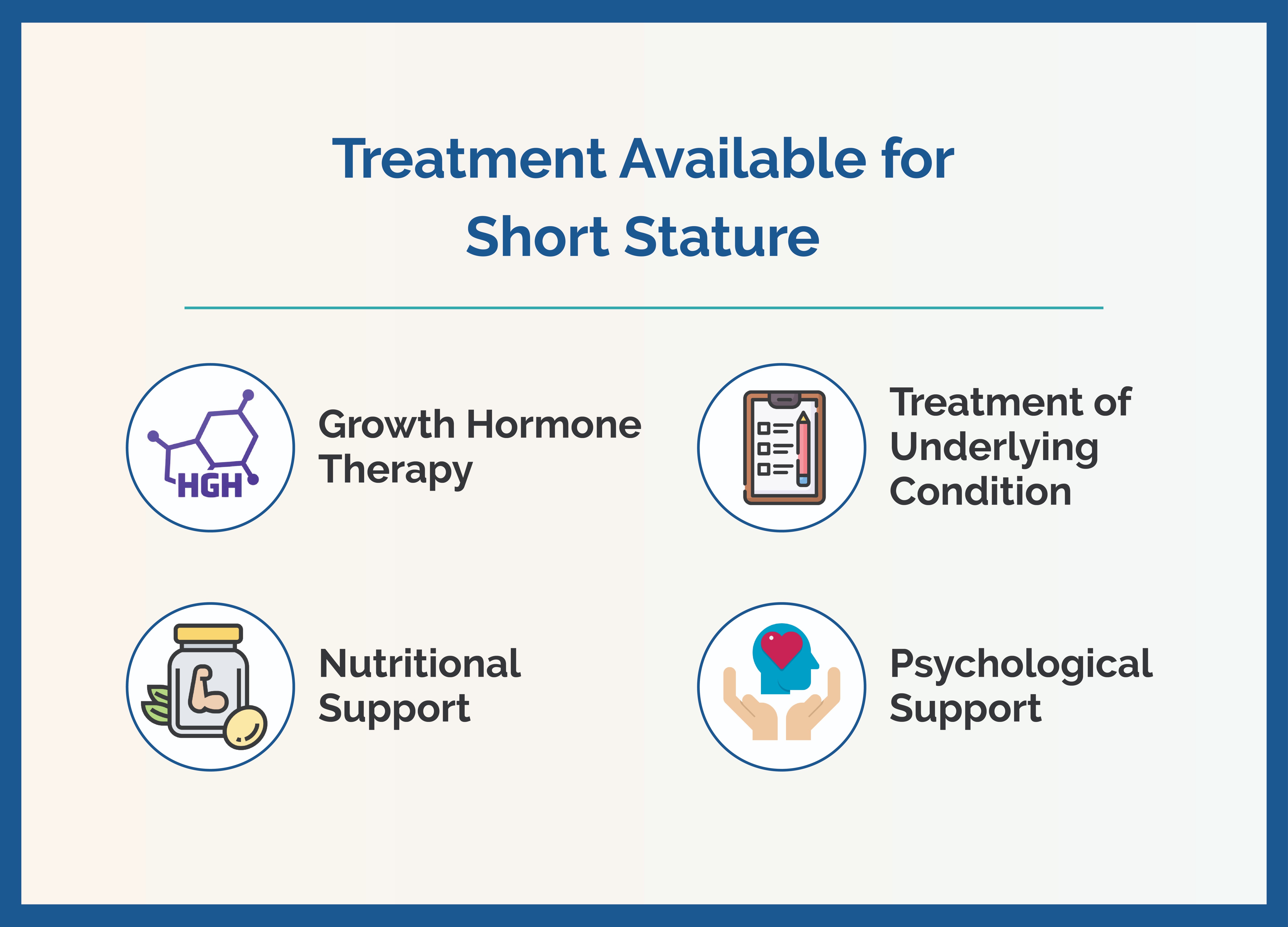Frequently Asked Questions (FAQs):Short Stature:
What is considered short stature?
Short stature is typically defined as a height that is two standard deviations below the mean height for
age and sex, which places an individual in the bottom 3% of the population.
How can I tell if my child has short stature?
If your child's height is significantly below their peers and shows a deviation from their growth curve, it
is advisable to consult a pediatrician for evaluation.
What are the common signs that indicate a child might have a growth hormone deficiency?
Signs include significantly shorter stature compared to peers, slow growth rate, delayed puberty, and
younger facial appearance.
Can short stature be a normal variant?
Yes, short stature can be a normal variant, particularly if both parents are short. This is known as familial
short stature.
What role does nutrition play in growth?
Proper nutrition is crucial for normal growth and development. Deficiencies in essential nutrients can
impede growth.
How effective is growth hormone therapy?
Growth hormone therapy can be effective for children with growth hormone deficiency, leading to
improved growth rates and final adult height.
Are there any risks associated with growth hormone therapy?
Potential risks include joint and muscle pain, insulin resistance, and increased risk of certain cancers. It
should be administered under strict medical supervision.
When should I seek medical advice for short stature?
A Seek medical advice if your child's growth rate slows significantly, falls below the 3rd percentile for
height, or shows signs of an underlying health issue.
Can short stature be detected prenatally?
Certain causes of short stature, like skeletal dysplasias, can be detected prenatally through ultrasound
and genetic testing.
Is there a connection between short stature and psychosocial issues?
Children with short stature may experience self-esteem issues, bullying, or social challenges.
Psychological support can help address these issues.
Can adults benefit from growth hormone therapy?
Growth hormone therapy in adults is typically reserved for those with growth hormone deficiency, and
it can help improve bone density, muscle mass and overall quality of life.
Are there any lifestyle changes that can help with growth?
A balanced diet, regular exercise, adequate sleep, and addressing any chronic illnesses can support
normal growth and development.



